Most people feel tired occasionally. Many people experience at least some of the hypothyroidisms signs and symptoms you’ll see below occasionally.
The question is how many of these, and to what degree, you experience them.
If several or more of the following signs and symptoms are happening more than feels “normal,” it indeed could be hypothyroidism, or “borderline hypothyroidism.” Please have this checked by a health practitioner you trust, and read this article carefully, including the common deficiency that could be behind these symptoms.
Signs and Symptoms:
- Feel tired all day, even when you get 7-8 hours of sleep the night before
- Have to take a nap (or lots of naps) during the day just to keep going
- Frequent to constant fatigue
- Experience brain “fog,” often feel confused and/or overwhelmed
- You forget simple things (and perhaps brush it off as “senior moments”)
- Feel bloated or puffy
- Achy joints
- Experience unexpected weight gain, despite eating right and exercising
- Feel “down in the dumps”
- Suffer from cold hands or feet, numbness, and/or tingling in the extremities
- Hair is dry and brittle, or you are experiencing hair loss
- Dry skin
- Have a rash that won’t go away
- If you are premenopausal, your periods are irregular
- Have excessive pain and/or cramping each month during your period
Many Conventional Doctors Have No Clue About Hypothyroidism

If you do have hypothyroidism or “borderline hypothyroidism,” you are not alone.
The American Thyroid Association[i]estimates that around 20 million Americans have some form of thyroid disease — and up to 60 percent do not even know it.
What’s more, women are five to eight times more likely to have it than men.
Yet many doctors do not know the real cause nor what to do about it. So many simply hand out a prescription for anti-depressant medication and instructions to wear socks and gloves for cold hands and feet.
Patients often leave the doctor’s office feeling more confused than ever. You may even have been one of them.
If you do not act to help borderline hypothyroidism, however, the consequences can be serious. Here are just a few complications that can occur if borderline hypothyroidism goes on for too long:
Severe Hypothyroidism
Borderline hypothyroidism can lead to severe hypothyroidism.
The main conventional “solution” for this is pharmaceutical drugs aimed at replacing natural T3 or T4 thyroid hormone with the synthetic version.
Sometimes thyroid medication is absolutely necessary to get things going again, but these drugs can be notoriously hard on the system in other ways.[ii]Studies have found that women who take synthetic thyroid replacement for 15 year or more are twice as likely to develop breast cancer than those who do not.[iii]
Heart Disease
Low thyroid function decreases the amount of blood pumped from the heart. This makes arteries less flexible and may increase arteriosclerosis.
A 2010 European study[iv]of over 50,000 individuals found that subclinical hypothyroidism is directly associated with coronary heart disease and death from coronary events, especially in those who had higher TSH (thyroid stimulating hormone) as well.
Feeling Blue
Low thyroid hormone levels, if left unchecked over time, can lead to depression. Studies over the last 20 years have made the connection.[v]This just makes sense, since thyroid hormones are vital for brain growth and overall brain health.[vi]
Brittle, Dry Hair and Skin
Borderline hypothyroidism can affect hair and skin. In severe cases, low thyroid function can make hair fall out and rashes, or eczema, break out on the skin. These may be signs that a sluggish thyroid is not producing enough T3 and T4 hormones to maintain metabolism.
Remember that how your skin and hair look is often a tell-tale sign of how healthy you are on the inside.
This Crucial Mineral May Help
Adding just one simple mineral to your diet may help in a very signifiant way: iodine.
Iodine is absolutely essential for hundreds of functions in the body.[vii]
In fact, the thyroid is the “master control center” of all the hormones in your body, determining how much of a certain chemical is released and where it goes.[viii]If it is not doing its job right, then hundreds of essential functions may go “off line” over time and start to break down.
Iodine is essential for the brain, the liver, the heart, the kidneys, the skin, the digestive system, and proper metabolism.
In women, iodine is essential for breast health, too.[ix]
Like the thyroid, the mammary glands have a “trapping mechanism” for iodine since both the breasts and the thyroid need this vital mineral for “food.”
Do You Need More Iodine in Your Diet?
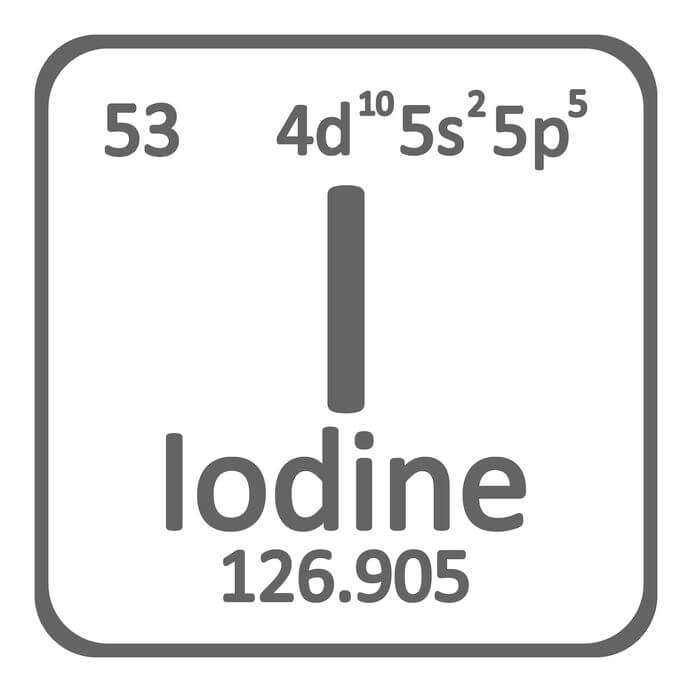 One of the results of our toxic environment, poor diets, and stressed out lifestyles is a condition called “subclinical iodine deficiency.”
One of the results of our toxic environment, poor diets, and stressed out lifestyles is a condition called “subclinical iodine deficiency.”
Subclinical deficiency is when iodine levels fall just within the “accepted range,” as determined by the Recommended Daily Allowance, or the Recommended Daily Intake put forth by the U.S. government.
The RDA/RDI levels for iodine were created over 75 years ago in an effort to prevent goiter and ensure healthy pregnancies.[x]This means that an individual will have enough iodine to prevent severe conditions such as goiter, but not enough to prevent chronic disease.
It is clear that many Americans are suffering needlessly from the consequences of subclinical iodine deficiency.
The biggest clue to this can be seen in the NHANES surveys conducted by the U.S. Centers for Disease Control.
Between the first NHANES study (1971 – 1974) and the third (1988-1994), the average iodine concentration in urine decreased by 50% while chronic conditions related to subclinical low iodine levels (like the ones mentioned above) rose significantly.[xi]
What’s more, subsequent NHANES surveys have found no change in iodine levels since then.
This situation may seem dire, but there is a two-fold process you can consider doing: clean out your body of dangerous halide chemicals and consider adding more iodine to your diet.
The Right Kind of Iodine Can Flush Out Halides
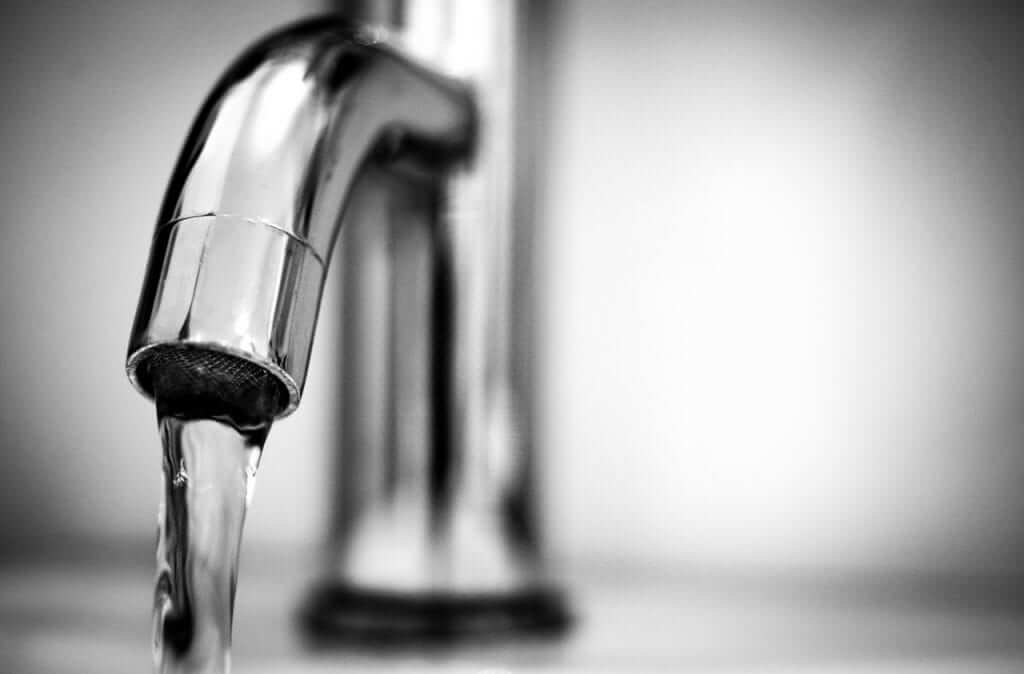
There are basically three types of “halide” chemicals that can block iodine absorption. They are:
Fluoride: Found in toothpaste, dental products, and especially in tap water[xii]
Chlorine: Found in swimming pools, household products, many packaged foods, and tap water[xiii]
Bromide: Found in swimming pools, new carpet, prepared baked goods, commercial dairy, and new cars[xiv]
The good news is that iodine supplementation can fill the body with essential nutrients to get it back “online” again while at the same time flushing out dangerous halides.
Just be sure to choose the right kind of iodine for your needs.
I strongly suggest using only 100% organic-sourced, glycerin-based, nascent iodine (sometimes called atomic iodine), like this iodine from Organixx.
Nascent iodine is the most bio-available form of iodine out there. This is in large part because it does not break down in the digestive system but instead is readily available for all parts of the body that need it right away, especially the thyroid.
70% Deficient in Iodine
The World Health Organization[xv]estimates that about 70% of the world population is iodine deficient today.
If you think you may be one of them, consider getting your thyroid levels as well as your iodine levels tested right away. Work with a health professional you trust. Consider your options and take action.
One powerful natural step is supplementing with nascent iodine, which can provide your body other benefits, too.
If you decide to supplement, make sure you choose the very best quality nascent iodine which can be absorbed faster and more efficiently than any other.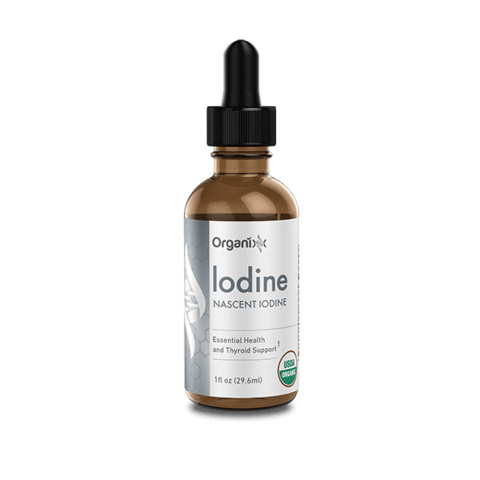
If you’re interested, discover more about the 100% pure, USDA Certified Organic nascent iodine from Organixx here.
When you click above, be sure to see the other benefits of iodine, too, including protection from radiation, helping your body get more nutrients from food, and healthy immune system function.
References:
[i]American Thyroid Association: General Information/Press Room
[ii]Mayo Clinic: Drugs and Supplements, Levothyroxine (Oral Route)
[iii] Breast Cancer Relationship to Thyroid Supplements for Hypothyroidism
[iv]Subclinical Hypothyroidism and the Risk of Coronary Heart Disease and Mortality
[v]The Thyroid Axis and Depression
[vi]Thyroid Hormones in Brain Development and Function
[vii]National Institutes of Health: Iodine
[ix]Weston-Price: The Great Iodine Debate
[x]History of U.S. Iodine Fortification and Supplementation
[xi]Iodine status of the U.S. population, National Health and Nutrition Examination Survey, 2005–2006 and 2007–2008.
[xii]Are fluoride levels in drinking water associated with hypothyroidism prevalence in England? A large observational study of GP practice data and fluoride levels in drinking water.
[xiii]Effects of chlorine dioxide on thyroid function in neonatal rats
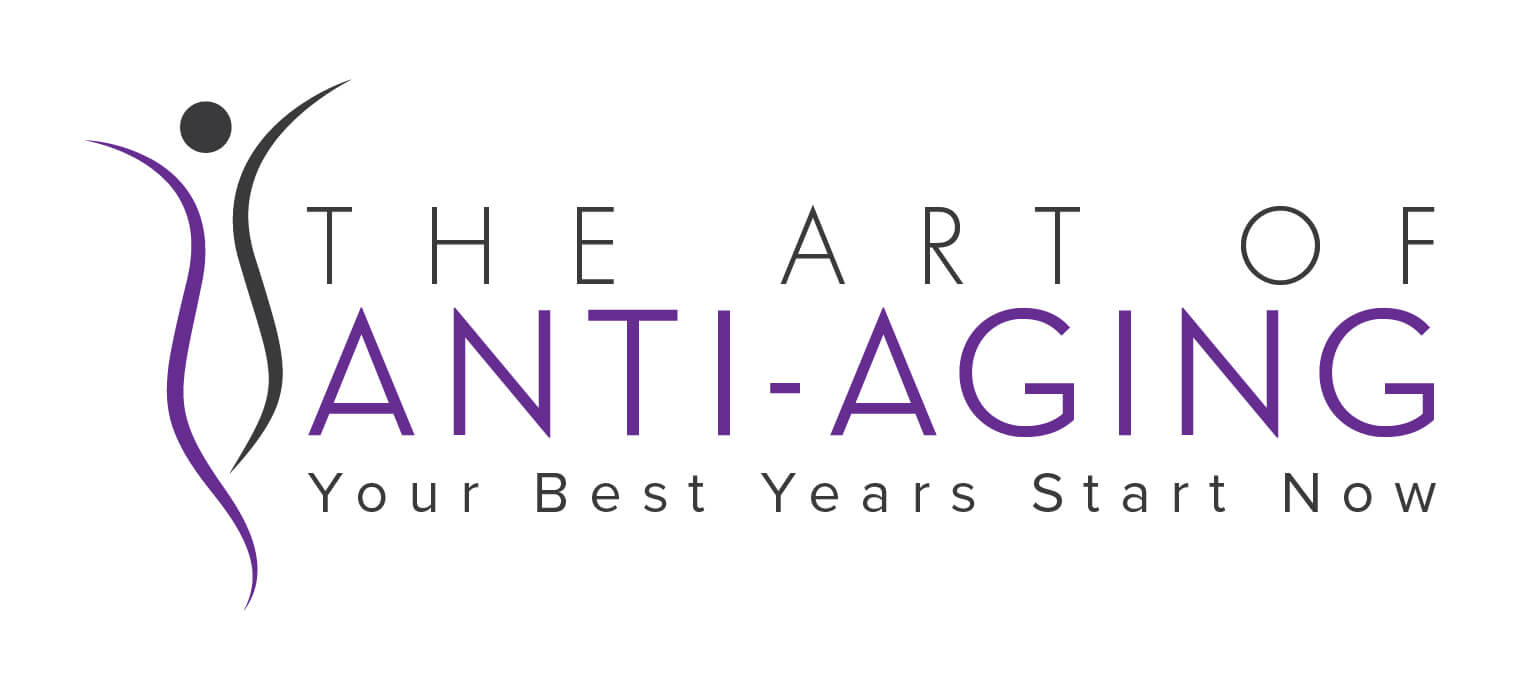
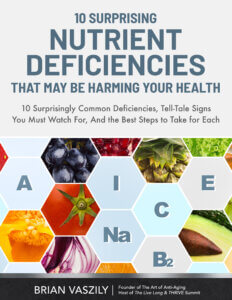
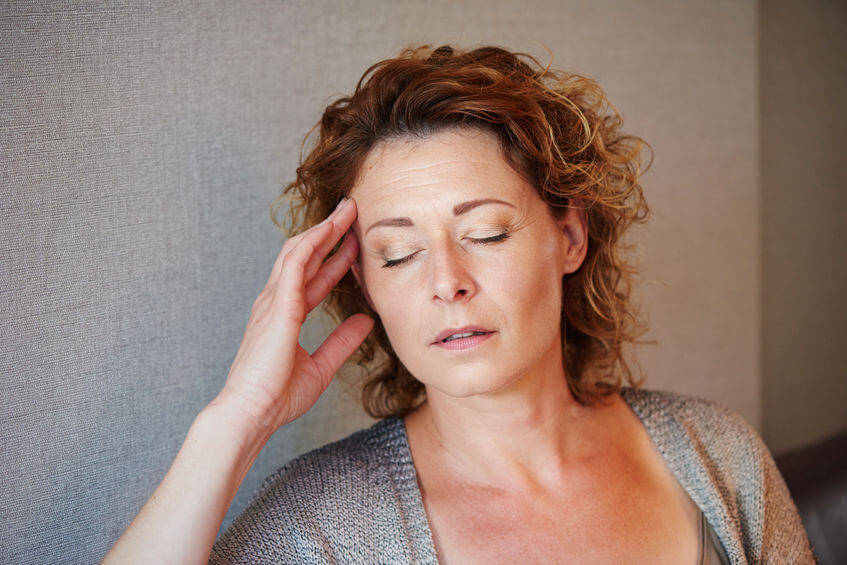
Excellent! My TSH just went to 5.8. I knew what u have said, asked Dr to check
Iodine. Also Iodine must be balanced before hormones